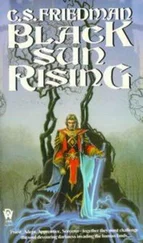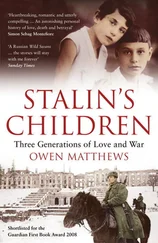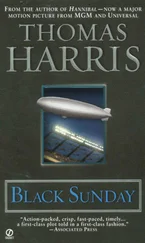Vasin and Andreyev filed out through a door different from the one they had entered. Three moon-men awaited them, armed with powerful spray guns. They buffeted Andreyev and Vasin unceremoniously from every direction with hot water, two spraying and the other brushing vigorously with a long-handled broom. Then the white ghosts stripped off Vasin’s and Andreyev’s protective clothing and pointed them, dripping in their underwear, into a shower room. Even as steam rose around the two men’s bodies, Vasin found himself shivering.
“You find our procedures thorough, I hope?”
“I trust this was not only for my benefit, Doctor.”
“We take radiation very seriously at Arzamas.”
“There is no doubt about the cause of death?”
“None. The symptoms are very clear. Petrov ingested a highly radioactive substance sometime last Monday. A simple analysis of his vomit confirmed the presence of thallium. And tissue samples show that he consumed around two thousand milligrams. Two grams. A fatal dose is only around a quarter of one milligram. Therefore he ingested enough to kill eight thousand people. You see why we are reluctant to open him up.”
“And the source of the thallium? Who has access to it?”
Andreyev turned to the investigator.
“Hundreds of people. This whole city is built on radioactive materials. And their uses.”
The doctor tugged up his braces and slipped on his white lab coat.
“Petrov had access?”
“Of course. He worked in the Institute. But you’d have to ask his lab clerks for details. They keep a log, I imagine, in the laboratory.”
“And you, Doctor, what is your feeling about the cause of death?”
“I have no feelings, Comrade Major. Only observations. And my observation is that men who work with reagents such as thallium are professionals. They are well aware of the dangers.”
Vasin now regretted the uniform. Pathologists often had good hunches, usually shared like postcoital endearments over an after-autopsy cigarette. But here in the bright sterility of this hospital basement, there were no dark corners in which confidences could grow.
“Does it look like a suicide to you?”
Andreyev gave Vasin a long look.
“Comrade. The scientists here live in a cloud. But the cloud is small and very high up. And sometimes the cloud gets very crowded. People fall off.”
“Or jump off?”
“That, Comrade, if you will permit me to say, is your department.”
Andreyev shook Vasin’s hand and left him standing in the changing room. In a glass window in the laboratory door, Efremov’s face appeared, peering in impatiently to see what was keeping Vasin.
III
Outside the hospital Vasin sucked greedily on another cigarette.
“Why didn’t you view the body with us, Efremov? You don’t seem the squeamish type to me.”
The adjutant, his arms deep in the pockets of his raincoat, merely nodded.
“How long are you going to keep up this strong, silent act, Efremov?”
His companion smiled coldly.
“Are you bored already by Arzamas, Major? In need of conversation?”
“I need information.”
“Such as?”
“Such as, how did Petrov die?”
“It’s…”
“In the file. Of course. But my memory is terrible. Remind me.”
“Petrov was found dead in his apartment. Killed by thallium poisoning.”
“And what did he do in the last hours of his life?”
“Petrov was last seen alive at dinner with colleagues.”
“Which colleagues?”
“He dined with Professor Adamov and his wife at their home. They reported that Petrov seemed tired but otherwise normal.”
“Was anyone else at dinner?”
“An engineer colonel. Pavel Korin.”
“And how long did it take the thallium to kill Petrov? Any idea when he ingested it? Or how?”
“A matter of hours. He took it himself.”
“You suppose. Did anybody visit him at his apartment after dinner?”
“No.”
“Does his building have a concierge? A guard?”
“He was asleep. It’s in his witness statement.”
“So we have no way of knowing if anyone came or left during the night?”
Efremov sighed wearily.
“Petrov took his own life, Vasin. People usually do that alone.”
“Did he leave a note? Can we visit his apartment?”
“Your memory really is terrible, Major. General Zaitsev just told you that it was impossible. Too radioactive.”
“He said the same about seeing the body. Yet here we are.”
“You may look at the investigator’s photographs.”
“I will. But did you see the apartment yourself?”
Efremov’s icy face registered a twitch of emotion.
“I did, as it happens.”
“And what did you see?”
“Blood and radioactive… Efremov seemed to search for a more delicate word but decided against it. “Radioactive vomit. Everywhere.”
“And where was Petrov?”
Efremov struggled for a moment, torn between distrust and a desire to talk.
“Come on, old man. We’re on the same side.”
“Petrov was tangled in his sheets. He’d ripped them into shreds. And he’d torn the pillow apart with his teeth. There was even blood up the wall.”
“Sounds like a pretty horrible way to die.”
Efremov shuddered involuntarily but said nothing for a long moment.
“Maybe he deserved it.”
“ Deserved it?”
Efremov summoned another glacial smile.
“Right. Enough chitchat.” The adjutant’s voice had become brisk and official. He tugged his tunic straight and looked at his watch. “Registry should be ready for you now. Let’s get you buried in that paperwork.”
“Before you bury me…”
Efremov’s eyes narrowed in suspicion.
“I need to send a telegram, internal and secure. To my boss.”
Secure naturally meaning—to be immediately shown to Zaitsev.
“Telegram?”
“It’s time to check in with Moscow. Procedure. My chief likes to keep his finger on the pulse. Unless you’d rather I didn’t, of course.”
“Of course.”
Vasin knew that just four words would probably do the trick. REQUEST IMMEDIATE INTERVIEW ADAMOV. If he had learned anything in his year at Special Cases, it was that General Orlov possessed an almost supernatural knack of making some of the most powerful men in the USSR jump to his will. General Zaitsev be damned. Within hours, Vasin guessed, some mighty voice of authority would be on the line instructing the Professor to make time. Now.
IV
Petrov’s file weighed heavily in Vasin’s lap. The dead scientist’s file picture was a professional studio portrait, the face cast in a dramatic half-shadow like that of a star from Mosfilm. Petrov wore his good looks lightly, a half smile on his lips. A face from a magazine: curly light hair, large blue eyes, a chiseled jawline. A face that nobody had smacked, certainly. The eyes ready to crinkle into an expression of earnest devotion. A lover’s face.
Zaitsev and his men had been thorough. The file contained Petrov’s complete personal records: forty pages of references and checks going back with clockwork regularity for each of the six years that he’d been in Arzamas. Party meetings attended and dues paid, formal reports from Party instructors. And before that his Young Communist League records and a pile of letters of recommendation from university supervisors. The letterheads bloomed with red stars and laurel wreaths.
Vasin’s practiced eye caught what wasn’t there. There were no denunciations from colleagues or snide notes from superiors in the file, no phone or mail intercepts. None of the usual fragments of office gossip or petty resentments that usually found their way into the kontora . The KGB, it seemed, had no eyes or ears inside the senior circles of the Citadel. As far as the kontora was concerned, the Institute was smoothly sealed behind a high, closed wall of silence.
Читать дальше












